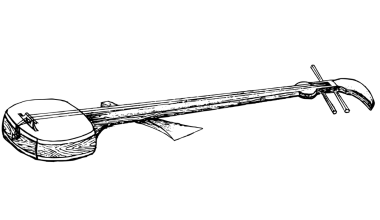As an artist, creating music is only part of the journey. To truly make an impact, you need to get your music out into the world. Distributing music is the key to connecting with listeners across the globe. But how do you do it effectively? This blog will guide you step-by-step, making the process straightforward and accessible.
Why Is Music Distribution Important?
Imagine creating an incredible song that nobody hears. That’s where music distribution comes in. It bridges the gap between you and your audience, helping your music reach platforms like Spotify, Apple Music, and YouTube. Without distribution, your art could remain hidden. Let’s explore why this step matters:
- Reach a global audience: Distribution platforms make your music available to listeners worldwide.
- Generate income: You can earn royalties when your music is streamed or purchased.
- Build a fan base: Getting your music on popular platforms helps you attract new fans.
With so many benefits, it’s clear that distributing your music is a vital part of your career as an artist.
Understanding Music Distribution
Before diving into how to distribute music, let’s clarify what it actually means. Music distribution is the process of delivering your music to digital and physical platforms where people can listen to, stream, or buy it.
In the past, distribution was about getting physical records, tapes, or CDs into stores. Today, it’s mostly digital. Here are the two main types of distribution:
- Digital Distribution: This includes platforms like Spotify, Apple Music, Amazon Music, and Tidal. These services allow listeners to stream or download your music.
- Physical Distribution: Though less common today, some artists still release CDs and vinyl for niche audiences or dedicated fans.
Choosing the Right Music Distributor
To distribute music, you need a distributor—a service that delivers your tracks to various platforms. Choosing the right one can make or break your success. Consider these factors:
- Fees and pricing: Some distributors charge upfront fees, while others take a percentage of your royalties.
- Platforms covered: Ensure the distributor works with all the major streaming services.
- Ease of use: Look for a distributor with a user-friendly interface.
- Additional features: Services like analytics, promotion tools, and royalty tracking can be valuable.
Popular music distribution services include:
- DistroKid: Affordable and fast, it’s a favorite among indie artists.
- TuneCore: Offers detailed reporting and access to over 150 stores.
- CD Baby: Combines distribution with licensing and marketing services.
Preparing Your Music for Distribution
Before you distribute music, ensure it’s polished and professional. Here’s what you need:
1. High-Quality Audio Files
Quality matters. Use WAV files or high-resolution MP3s for the best sound. Poor-quality audio can turn listeners away.
2. Album Artwork
Your artwork represents your music. It should be eye-catching, relevant, and meet platform requirements. For example, Spotify requires a square image at least 3000×3000 pixels.
3. Metadata
Metadata includes details like the song title, artist name, genre, and release date. Accurate metadata ensures your music is searchable and properly credited.
How to Distribute Music Online
Now, let’s dive into the process of distributing your music. Follow these steps:
Step 1: Select a Distributor
Choose a service that fits your needs and budget. Compare features and read reviews to make an informed decision.
Step 2: Create an Account
Sign up with your chosen distributor. Most platforms will guide you through the setup process.
Step 3: Upload Your Music
Upload your audio files, artwork, and metadata. Double-check everything for accuracy before submission.
Step 4: Choose Release Date and Platforms
Decide when you want your music to go live and select the platforms you want to target. Some distributors offer pre-save options to build anticipation.
Step 5: Submit for Approval
Once you’ve filled out all the necessary information, submit your music for distribution. The approval process usually takes a few days.
Promoting Your Distributed Music
Distribution is just the beginning. To maximize your reach, you need a solid promotion strategy. Here’s how:
Platforms like Instagram, TikTok, and Twitter are great for connecting with fans. Share behind-the-scenes content, snippets of your music, and links to your tracks.
2. Collaborate with Influencers
Work with influencers who can share your music with their audience. This can help you reach new listeners quickly.
3. Create a Press Kit
A press kit includes your bio, photos, and links to your music. Share it with bloggers, journalists, and radio stations to gain media coverage.
4. Run Ads
Use paid ads on platforms like Facebook or Google to target specific audiences who might enjoy your music.
Tracking Your Success
Once your music is live, track its performance. Use analytics tools provided by your distributor or streaming platforms. Look at metrics like:
- Streams: How many people are listening?
- Demographics: Who is your audience?
- Geography: Where are your fans located?
Understanding these insights can help you refine your future releases and promotion strategies.
Common Mistakes to Avoid
Distributing music can be challenging, especially for first-timers. Here are some pitfalls to watch out for:
- Rushing the process: Take your time to ensure everything is perfect before submission.
- Ignoring metadata: Inaccurate metadata can cause issues with credits and payments.
- Lack of promotion: Distribution alone won’t guarantee success. You need to actively market your music.
- Choosing the wrong distributor: Research thoroughly to find the best fit for your needs.
Final Thoughts
Distributing music is an essential step for any artist aiming to share their art with the world. By understanding the process, choosing the right tools, and promoting your tracks effectively, you can grow your audience and build a successful music career.
For further reading, explore these related articles:
For additional resources on music marketing and distribution, visit DMT Records Private Limited.






